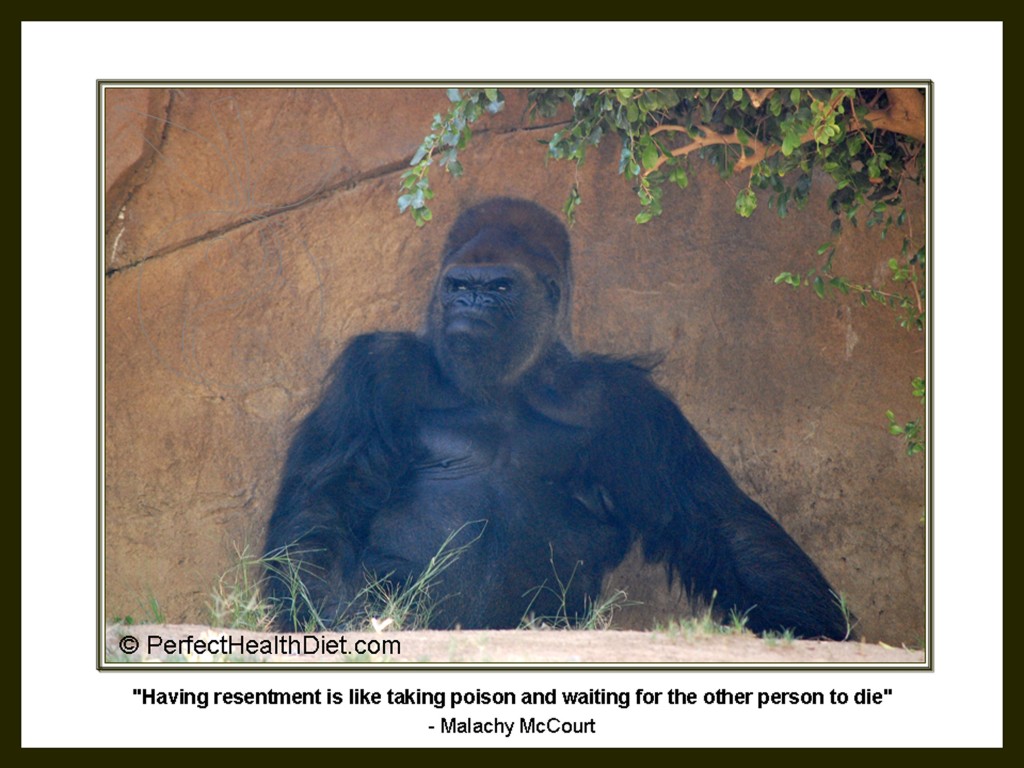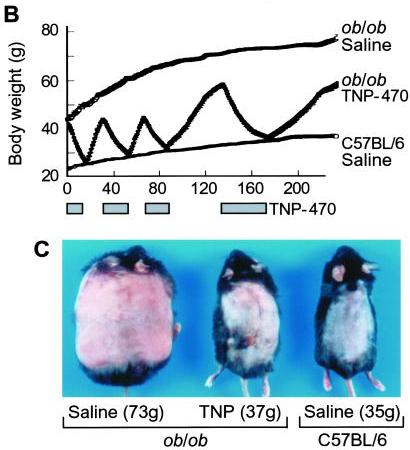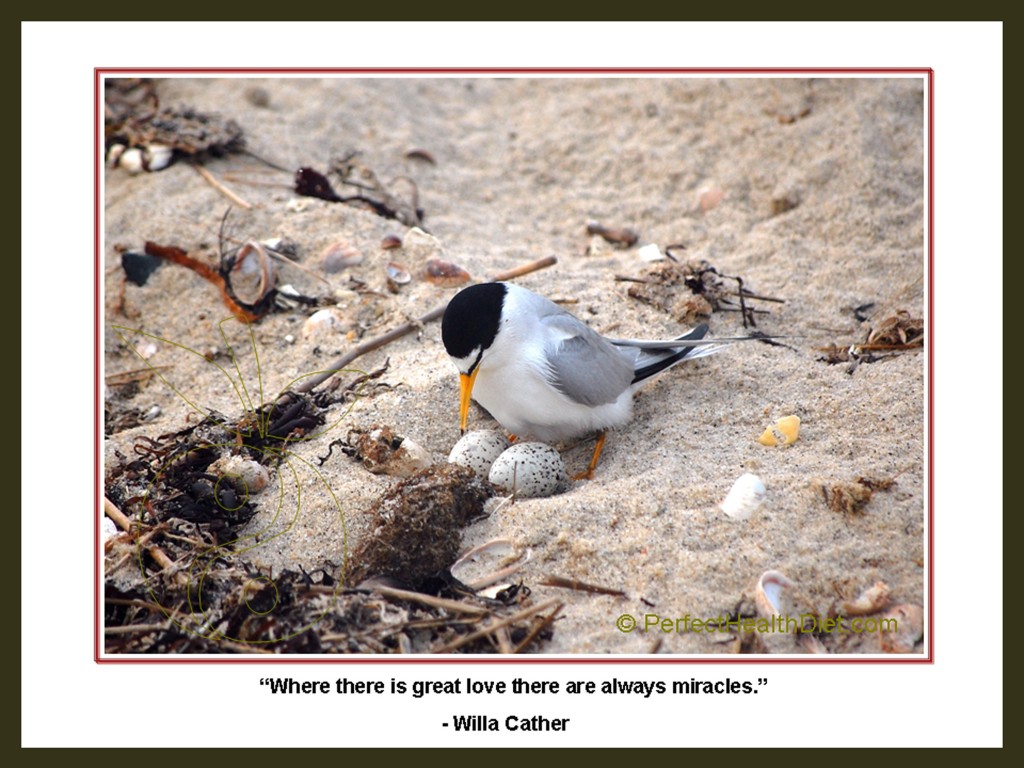We were very curious to see how readers would react to the new edition. Some of the reactions I think are interesting.
How Paleo is PHD? How PHD is Paleo?
One of my New Year’s resolutions is to do more on social media. Google+ has “communities” now and a few days ago I started a Perfect Health Dieters community just to see what it’s like. Paul Halliday, proprietor of Living in the Ice Age, left this note:
I bought your book since you were pointed out as someone who was more favourable about the role of carbs and very very much enjoyed the read.
My preconception about the PHD being a pro-carb diet were stopped in their tracks. In fact, the PHD is not a pro-carb diet at all. I read the book as very much a straight down the line paleo book with the inclusion that we need carbs to keep a number of basic bodily functions working as expected.
Two years ago it was totally shocking that a Paleo diet could include white rice (a grain! milled at that!), dairy, and other Neolithic foods. Now we’re “straight down the line paleo.”
In recent weeks, Robb Wolf has endorsed carbs and starches (part 1, part 2, part 3). Terms of our coinage, like “safe starches” and “supplemental foods” (meaning foods that one should eat on a regular schedule for their micronutrients, as people take supplements) have entered the Paleo vernacular. (See, for example, Mark Sisson’s recent post on supplemental foods.)
We couldn’t be happier about this. Not only is it progress toward better health, it is flattering to us.
I think the shift toward less restrictive diets speaks to the maturation of the ancestral health movement. Paleo is becoming a diet that is healthier, tastier, and more accessible and convenient to the general public; and gurus are following the evidence to more scientifically sound recommendations. That bodes well for our movement’s chances to become mainstream.
Responses to Our Obesity Ideas
A fair part of the new material in the book has to do with weight loss and obesity (see What’s New in the New Edition, 2: How to Lose Weight). I’m happy to see that a number of readers found the discussion illuminating.
Mark Lofquist, for instance, paraphrased an important observation from our book:
“Telling an obese person not to eat too much is as effective as telling a person with a cold not to cough too much.” (/paraphrased) -Dr Paul Jaminet
The original line can be found on page 176. Our position is that weight loss results from improved health combined with an energy deficit; eating less food generates an energy deficit but doesn’t necessarily improve health. In fact, if the previous diet was malnourishing, then eating less will make it more malnourishing and therefore will worsen health. The result will often be yo-yo weight regain and obesity that is more severe and intractable than before.
For effective weight loss, therefore, it’s inadequate to tell a person “Don’t eat too much.” You have to tell them how this may be accomplished in a healthful, satisfying way. This is what we try to do.
In fact, it’s best to focus on health first, and then the weight loss becomes easy. In an intelligent Amazon review, Navy87Guy notes:
I think it’s very telling that only a short chapter is actually devoted to the discussion of weight loss — because it is based upon all of the other principles that have already been outlined. The discussion in the weight loss chapter on the scientific origins of obesity is fascinating and sobering at the same time.
Great observation! Little needs to be said about weight loss once it has been explained how to be healthy. Good health leads to easy weight loss.
Have we succeeded in enabling weight loss? On Facebook, Henrik Johnsen shared some good news:
Today I can once again fit 3 pairs of pants that gave up wearing about 8 years ago. I’ve been losing weight steadily for the past 5 months by switching to Perfect Health Diet by Paul Jaminet and I’ve never eating so much fat and tasty food before in my life! Every meal’s a banquet! Thanks Paul! 😀
Kendal Lenton said:
Last week I decided to change my life, been eating great, and already down 8 lbs. Thank you Mark’s Daily Apple and Perfect Health Diet for helping me change my life.
Meanwhile, Laura at This Felicitous Life would like to lose a few pounds, but has been maintaining her weight. She has an idea that may fix that:
I’ve given it a lot of thought and done some scientific research and have come to a very cutting-edge hypothesis:
Maybe I should stop drinking 1/4 cup (or more) of heavy whipping cream in my coffee every day.
Heh. Yes, some people can lose weight eating whatever they want; just choosing healthy foods in the right proportions is enough. Others have to watch portion sizes or, as we discussed in Perfect Health Diet: Weight Loss Version, trim the fat.
It’s sad, but we can’t always have everything we want!
The Healer’s Perspective
One of my recent projects has been helping the Ancestral Health Society set up a new journal, the Journal of Evolution and Health. We have chosen a platform, are about to start editorial operations, and the first issue may appear as early as summer.
One goal of this journal is to document the successful health improvements that are often brought about by ancestral diets and lifestyles. Doctors and other clinicians are the best sources for that information, since they can see how multiple patients respond to the diet, and see negative as well as positive responses. To help bring Perfect Health Dieters and healers together in sufficient numbers to create a critical mass of knowledge, I’ve created a Healers page, and I invite healing professionals who would like to investigate the value of the Perfect Health Diet to list themselves there.
One medical doctor who has been recommending our book to patients is Dr. Shira Miller of The Integrative Center in Los Angeles. She wrote recently to say that “my patients are loving the book.”
Over at Amazon, Dr. Verne Weisberg says our book is “seriously important” and writes, “As a physician who treats obesity, I highly recommend that anyone looking to correct any of the multitude of ailments that stem from diet give careful consideration to what they have to say.”
I really liked the Amazon review from Denise Baxter, a certified health coach:
My clients are overjoyed with the changes they are experiencing in their bodies and their minds. They find their meals more enjoyable and easier to prepare. They appreciate being able to fix one meal for the entire family. One of my diabetics was able to lower her insulin yet again, and reduce her blood sugars even further by adding some safe starches. Although she had a great deal of trepidation about doing so, she loves the results.
This book is a gem and has answered many of my long standing questions. Paul and Shou-Ching Jaminet have made an enormous contribution with their many years of work. I will not be surprised to see their work make a significant difference in the health of our nation.
Other Amazon Reviews
R.U. Kidding-Me made me laugh:
As I read through this book there were quite a few what I like to call “Holy s*** moments” where I was so happy to read things that actually make sense.
In the end, even if you did not agree with or understand all of it, you emerge from this book like one does from a fog and you realize that you are definitely smarter than the person sitting next to you 🙂 Whoa! Mind blowing!!
Despite being full of research, the book is a pleasure to read and is easy to follow. I kept turning pages and saying to myself, “well, when you put it that way, of course!”
T., Quinton left a heartfelt review:
Although I wouldn’t wish illness on anyone, I’m grateful that the Jaminet’s were able to contribute immensely to society as a whole while conquering their own illnesses…. I have lost weight even though I’m not trying to, and am rarely hungry.
Navy87Guy has a complaint:
My only complaint is that they use the word “diet” in the title. While they use it in the academic sense (i.e., the foods that you habitually eat to provide sustenance), too many people only think of “diet” as a restriction in your food intake to promote weight loss. I prefer to think of the authors’ book as a “lifestyle”, rather than simply a prescription for changing your food intake. That view is reinforced by the holistic treatment of the impacts of circadian rhythm disruption on health – a fascinating chapter that probably could have as much impact on your overall health as your choice of food!
TMac had the same thought: “It pains me that the Jaminets decided to call their plan the Perfect Health Diet, rather than the Perfect Health Lifestyle.”
We liked G. Nesta’s comment:
When something just makes sense and seems right, you know it. I am basically back to the diet of my parents and grandparents who lived into their 80s and were active and happy their entire lives. This is my favorite diet/health book that i have read.
Our thanks to everyone who has left an Amazon review!
Vegetarian Concerns
I’m planning a post or series of posts looking at the healthfulness of vegetarian diets. Recently Beth, a vegetarian considering a switch, asked about T. Colin Campbell’s claim that protein causes cancer. Elyse L offered some good advice for former vegetarians considering PHD:
Many folks following PHD (and Paleo) are former vegetarians or vegans. For me, I started digging into all of the information out there pro and con and finally decided to just give it a try and see how I feel. For me, I had immediate relief from lethargy, allergies and arthritis. What’s the worst that can happen? Give it a few weeks and see how you feel. If you listen to your body it will tell you what’s best.
The commenters on Allison’s post
Allison’s tale of her ongoing recovery from panic disorder, OCD, and chronic fatigue brought fascinating comments from readers who are addressing similar chronic diseases.
Jennifer has benefited from homeopathy and PHD:
The Perfect Health diet helped me in many ways. I lost weight that I could never lose and improved my cognition and memory. I also felt more together and calmer than I ever had in my life but I still had panic attacks. I had certain triggers that couldn’t be erased. So when my daughter got PANDAS, I did a lot of research and read a lot of accounts of children being helped by homeopathy (I know….I hear the collective groans of disbelief)….. My daughter and I have been going to [a practitioner of the heilkunst method of homeopathy] once a month since September. Most of her issues have been completely resolved and I am completely panic free and my insomnia (which I had for over a year…could not sleep without drugs) is completely resolved. I have inner strength that I have never had and I sleep like a baby…. I know many people are skeptical about homeopathy or know little about it but I am proof that it works … I do credit the Perfect Health diet for allowing homeopathy to work as spectacularly as it has for me since I think my issues would remain chronic if I weren’t on an optimal diet.
We believe chronic infections are an under-recognized cause of disease, and Hunter’s wife illustrates that thesis. She benefited from antiviral treatments:
Allison, everything you describe sounds like you could be my wife Tiffany in another life!
A couple years ago Tiffany decided to stop taking birth control and her health took a turn for the worse as those hormones were apparently helping to keep her “functioning” all the previous years and she suddenly developed amenorrhea and hypothyroidism. Finding an endocrinologist who would actually agree that she was hypothyroid was impossible but we kept trying until she eventually progressed to be so bad that she was officially diagnosed but after trying many different thyroid medications, none ever helped her “feel” better and no one could find the cause of her thyroid issues. We finally came across an ad in the paper for a chiropractor who said he specialized in thyroid disorders and chronic fatigue syndrome so we went to see him and he ordered hundreds of blood tests looking for infections. In the end he diagnosed her with a chronic viral infection of Epstein-Barr Virus (mono) among a couple others and he told us that he has seen this in multiple patients and Epstein-Barr is always related to chronic fatigue and thyroid issues. Chiropractors cannot prescribe medicine in the state of Florida so he transferred her to a semi-retired infectious disease specialist who he had worked with for previous patients, Dr David Reifsnyder in Lakeland, FL. Dr Reifsnyder agreed that Epstein-Barr is the main cause of her hypothyroidism and chronic fatigue and told us how he has treated hundreds of patients for this throughout his career and that they always have active Epstein-Barr infections but that most doctors don’t know how to test and diagnose an active chronic Epstein-Barr infection, even before he could test for the virus he said that he discovered patients with these symptoms would respond to antiviral treatment, and that Tiffany would have to take antivirals daily for the next 2-4 years but that he was sure this would eventually clear up all of her issues, however recovery would be a slow process as her HPA axis recovered and got “back into sync”.
We noticed her improving almost immediately after starting the daily antivirals and it’s now almost 1 year later and she’s stopped taking antidepressants and just seems to have no desire to visit psychiatrists any more, something she had been doing for all of her adult life, I think they had tried putting her on every antidepressant possible over the years. She has also stopped taking thyroid medications and her body has normalized her thyroid levels on its own. She doesn’t have fatigue issues any more, she wakes up feeling more refreshed in the mornings and doesn’t want to sleep all day any more, she’s even started wanting to exercise and go jogging, something she enjoyed as a kid on the school track team but had given up as she got older and dealt with these issues. And after 1.5 years with a complete absense of her menstrual cycle her female sex hormones have normalized on their own and her regular menstrual cycle returned.
Jo had also suffered from panic disorder and other problems, but is doing better after getting antimicrobial treatment and eating PHD:
My life has been marked by fears – they literally dictated most of my choices. Finally, a diagnosis of autoimmunity that triggered an 8-year long search for remedies. I started addressing gut infections – gut imbalances and H.Pylori – then herpes viruses, then mono then, under Paul’s suggestion, I requested a course of fluconazole for a fungal skin condition that might actually be systemic. I saw improvements only when I addressed these infections together with a PHD compliant diet. The tics are still with me and are cyclical – which makes me think of some parasite I have not identified yet. But many other symptoms disappeared and for the first time I have a different perspective in life. In addition to infections I had several nutrient deficiencies – I was prone to break bones and hurt myself continuously, partly because of an anxious behavior and partly because of low vitamin D. I know very well what you mean about overcoming the memories and the habit of living life to cater fears. Plus, I spent so much time finding a psychological cause, torturing myself with any possible technique to train my mind…I wish I had known.
There is a great need for better diagnostic tools, better treatments, and more doctors who are willing to investigate and address chronic infectious conditions. But hopefully these stories will help move medicine in the right direction.
Last But Not Least
In my New Year’s Day post I quoted Jennifer Fulwiler to the effect that she was having a comfortable sixth pregnancy:
I have been following the PHD for this pregnancy. The results have been amazing. In fact, with all five of my previous pregnancies I had debilitating, severe morning sickness. On the PHD, I had almost none!…
[A]fter I had my fifth child I found myself tired, achy, and 35 pounds overweight. Thanks to the PHD I lost all the weight, and when the show was filmed, in my first trimester of pregnancy with my sixth child, I weighed the same as I did the day I got married, and felt better than I ever had in my life.
Fortune being fickle, soon afterward Jennifer experienced shortness of breath and checked into a hospital. Pregnancy is a risk factor for clotting, and Jennifer is homozygous for a mutation which leads to overproduction of Factor II (prothrombin). Her clotting disorder, which is shared by about 1 person in 10,000, was discovered during her second pregnancy when she suffered deep vein thrombosis. This time around the clotting caused pulmonary embolisms.
It’s impossible to know whether it contributed, but a few weeks before symptoms began Jennifer began taking a multivitamin with a number of coagulation-modulating ingredients. I may as well reiterate here for those trying to follow our diet without reading the new edition: One of the updated bits of advice is that we now recommend AGAINST taking a multivitamin, even in pregnancy.
Jennifer is at home and has resumed blogging, but I know she would appreciate prayers.





















Recent Comments